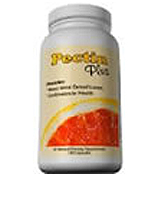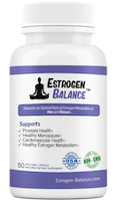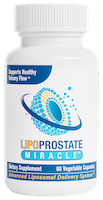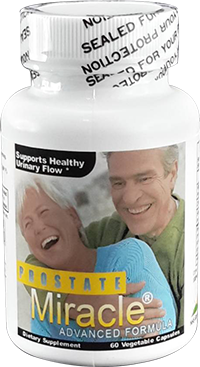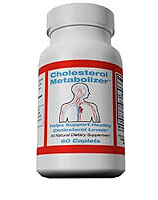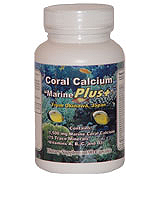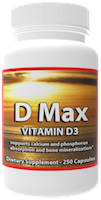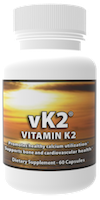Vitamin D3 and Prostate Health

A new study published by the journal Clinical Cancer Research (May 2014), suggests that low blood levels of vitamin D may be linked to more aggressive and advanced cases of prostate cancer.
The study suggests that vitamin D may play an important role in how prostate cancer starts and spreads, although it does not prove a cause-and-effect relationship. Researchers aren't yet sure exactly how it comes into play or even if taking extra vitamin D might keep prostate cancer in check.
"We really don't know, for certain, what role vitamin D plays in cancer . . . either the genesis or beginning of cancer . . . or in defining how aggressive the cancer may be," he said. "Further research has to be done."
What is known is that vitamin D plays several critical roles in how cells develop and grow.
"It seems to regulate normal differentiation of cells as they change from stem cells to adult cells. And it regulates the growth rate of normal cells and cancer cells." said study author Dr. Adam Murphy, an assistant professor of urology at Northwestern University's Feinberg School of Medicine, in Chicago.
Vitamin D is also known as the "sunshine vitamin" because skin makes it when exposed to sunlight. Vitamin D levels tend to drop with advancing age, and deficiency is more common in seasons and regions that get less sunlight and in people with darker skin, which naturally blocks the sun.
What about the vitamin's possible relationship to cancer?
"When you squirt vitamin D on prostate cells in a petri dish, their rate of growth slows down," Murphy said.
The idea is that too little of this critical vitamin in the body may cause cell growth to go awry, leading to cancer.
To test that idea, researchers checked vitamin D levels in 667 Chicago men between the ages of 40 and 79 who were having prostate biopsies because they'd recently had an abnormal prostate specific antigen (PSA) test or because a doctor felt changes to the prostate during a physical exam.
-
Normal vitamin D levels are in the range of 30 to 80 nanograms per milliliter (ng/ml).
- Vitamin D deficiency, or a level under 20 ng/ml, was relatively common among all the men tested.
- About 44 percent of the men with positive biopsies and 38 percent of those who tested negative for cancer had low vitamin D levels.
-
Among men who tested positive for cancer after their biopsies, those who also had very low levels of vitamin D under 12 ng/ml had greater odds of more advanced and aggressive cancers than those with normal levels.
The connection between vitamin D and cancer seemed to be even stronger in black men.
- Black men with vitamin D levels under 12 ng/ml were far more likely than those with normal levels to test positive for prostate cancer in the first place.
-
In general, black men are also more likely to be diagnosed with prostate cancer. On average, men have about a one-in-seven lifetime risk of getting prostate cancer. That risk rises to one in five for black men, according to the U.S. Centers for Disease Control and Prevention.
-
Researchers aren't sure whether lower vitamin D levels may help to explain why black men are at higher risk for prostate cancer. They say longer and larger studies are needed to sort out the connection.
A University of Colorado Cancer Center study published in the journal Prostate (2014) looked at the possibility that vitamin D may help reduce cancer-causing inflammation. Scientists found that the gene GDF-15, known to be up-regulated by vitamin D can help block a protein which stimulates tumor growth.
"When you take vitamin D and put it on prostate cancer cells, it inhibits their growth. But it hasn't been proven as an anti-cancer agent" said James Lambert, lead investigator at the University of Colorado Cancer Center. "We wanted to understand what genes vitamin D is turning on or off in prostate cancer to offer new targets."
Using a sophisticated computer algorithm, researchers analyzed samples of prostate cells and compared them to the prevalence of GDF-15 and inflammatory cells. Because they were able to demonstrate that vitamin D up-regulates the gene expression for GDF-15, they decided to further investigate to see if GDF-15 could be a pathway in which vitamin D inhibits prostate tumor growth. The results were compelling.
"There's been a lot of work on inhibiting NFkB," said Lambert. "Now, from this starting point of vitamin D in prostate cancer, we've come a long way toward understanding how we might use GDF-15 to target NFkB, which may have implications in cancer types far beyond prostate."
Have you checked your vitamin D blood level lately? If not, you may want to make an appointment with your doctor to check them with a simple blood test. Your levels should be between 30 and 80 ng/mL.
If you are thinking about taking a vitamin D supplement, you should be taking at least 1,000-2,000 IU a day,
A daily serving of Prostate Miracle® Advanced Formula provides 2,000 IU of vitamin D3, which is an optimal amount to support prostate health.
